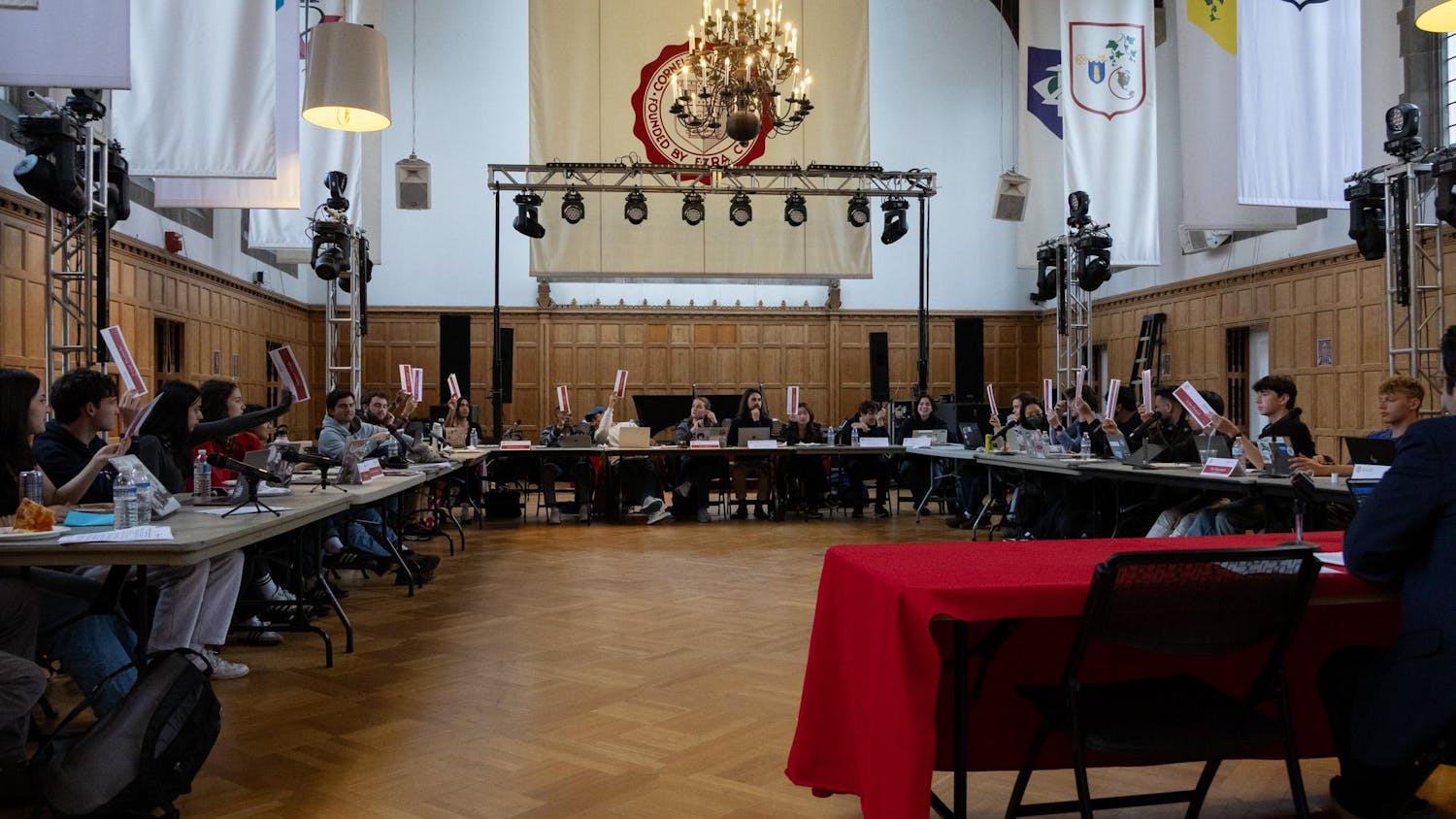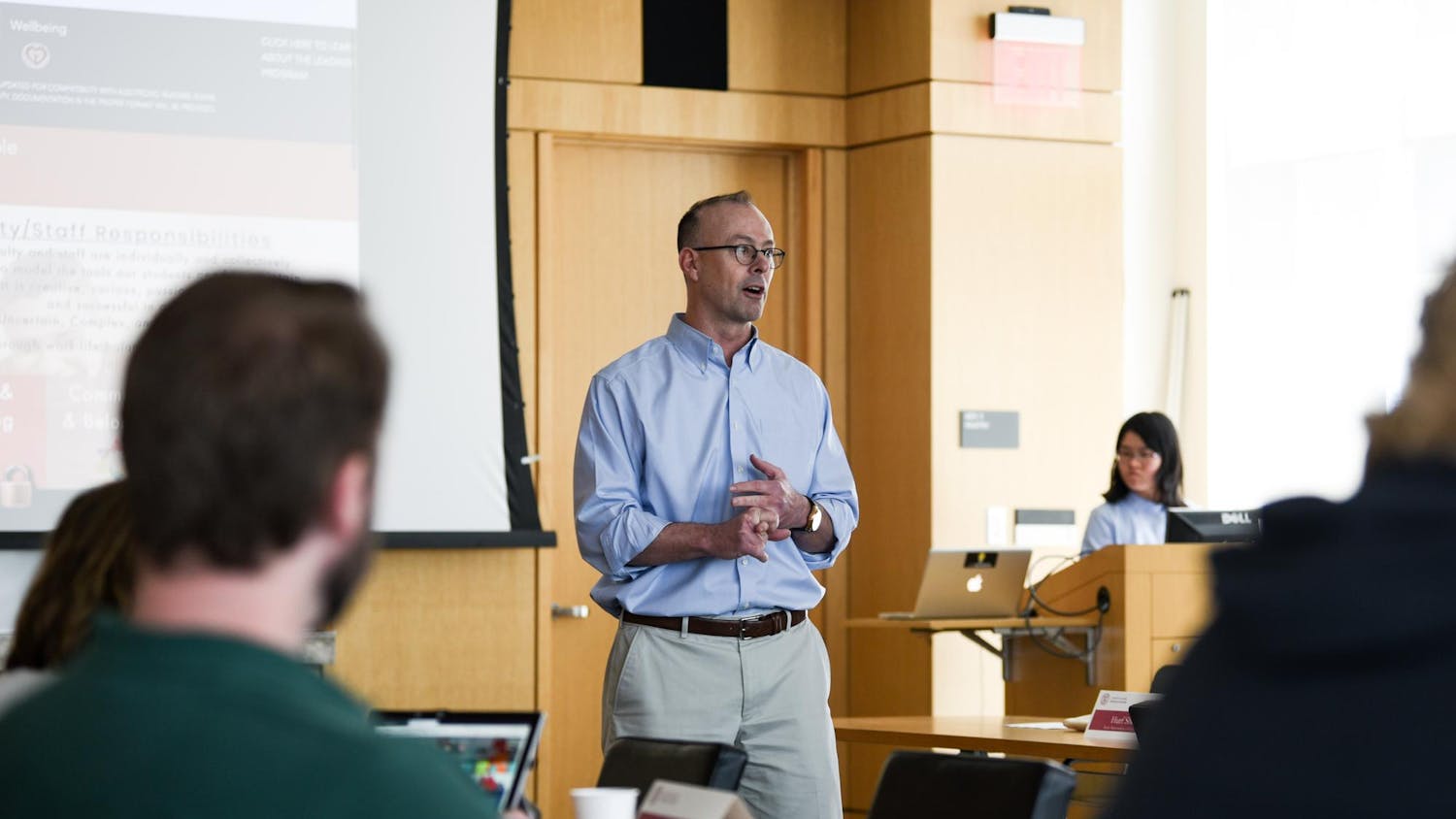Months after the University discontinued Empathy, Assistance and Referral Service peer counseling, Cornell EARS will once again provide one-on-one support for students while working to foster a more empathetic campus climate.
While EARS student leadership created a petition in March to protest the administration’s choice to discontinue EARS counseling services, they have since decided to work with the University to reinvent the organization.
EARS will continue to train students to be empathetic listeners and mental health referral resources for their own communities, while also introducing a new one-on-one mentoring service, distinguished from counseling based on the non-clinical nature of the conversations.
Mentoring sessions will focus on the student experience, including making friends, coping with stress and adjusting to University life. EARS peer mentors will work in three spaces — on North Campus in Robert Purcell Community Center, in Willard Straight Hall and in Upson Hall.
According to EARS co-presidents Felisha Li ’22 and Ben Lederman ’23, the sessions will be less structured and more free flowing than the former EARS counseling session structure.
“We were able to maintain the one-on-one relationship from peer counseling, which was at the heart of EARS,” Li said. “Now we're doing so in a way that focuses on the non-crisis level, before things get to the point of needing professional clinical counseling.”
The administration announced in February that EARS could no longer offer peer counseling services, after discovering that the University insurance plan did not support student-run counseling. However, the peer-mentoring model did not raise the same issues.
According to Li and Lederman, EARS leadership decided to collaborate with the administration to direct their energy toward supporting community mental health, instead of toward protesting a University decision.
Peer mentors will be able to share their own experiences when relevant and helpful, making the power dynamics more equal between peers, according to Li and Lederman. Unlike in under the counseling model, names and short biographies of EARS mentors will be public, helping them be positive community role models, working to reduce stigma around mental health. Previously, counselors' names were withheld from the public.
As EARS moves to a mentoring model, the program will also introduce new empathy chairs and liaisons to encourage empathy, communication, effective listening and wellbeing while sharing resources with their peers.
Liaisons are EARS members who will meet with student organizations that are looking to improve the culture around mental health in their community. Empathy chairs will receive EARS training and become mental health advocates within their own student group.
According to Sharon McMullen, assistant vice president for health and wellbeing, the outreach efforts EARS will work on this fall help further the goal of improving the mental health culture on campus suggested by the Mental Health Review, encouraging social connection, resilience and help seeking.
“I’m proud of the way the EARS students have stepped up and made these necessary changes,” Abi Dubovi, mental health promotion program coordinator in the Skorton Center for Health Initiatives and staff adviser to EARS, said in a University press release. “The new model will allow EARS members to meet students where they are, build peer relationships and integrate EARS-trained students into diverse communities on campus.”
For students looking to become peer mentors, EARS beginner training will remain largely unchanged, focusing on empathy and listening skills. Advanced training will be adapted to prepare EARS members for the new mentorship model.
EARS reinvention was welcome news to fellow mental health organizations on campus.
Cornell Minds Matter president Bianca Beckwith ’22 said she was happy to hear about the return to EARS one-on-one peer support, adding that she thinks the end to EARS staff anonymity could make students more comfortable using the resource.
As students re-adjust to life on campus, packed once again with in-person classes and club meetings, Beckwith said she’s glad EARS will be able to provide direct support.
“It's such a relief to know that they're trying to stick as true to their previous programming as possible, while also recognizing that counseling doesn't necessarily need to be their emphasis in order to support the student body,” Beckwith said.











